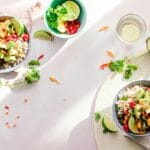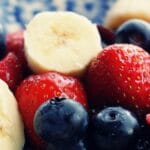In recent years, there’s been a growing interest in natural ways to boost testosterone levels. This hormone is essential for both men and women, playing a key role in muscle growth, energy levels, and overall health. While various factors can influence testosterone production, diet is one of the most significant. By focusing on certain foods, you can naturally enhance your testosterone levels and enjoy the numerous health benefits that come with it. In this article, we will explore the best foods to increase testosterone and delve into the science behind how they work.

Increase testosterone : Understanding Testosterone
Before we dive into the foods that can boost testosterone, it’s important to understand what testosterone is and why it matters. Testosterone is a hormone primarily produced in the testicles for men and the ovaries for women, although smaller amounts are produced in the adrenal glands. It is responsible for the development of male characteristics, but it also plays a crucial role in women’s health.
Functions of Testosterone:
- Muscle Mass and Strength: Testosterone is essential for muscle growth and strength. It helps in the synthesis of proteins, which are the building blocks of muscles.
- Bone Density: Testosterone contributes to bone density, reducing the risk of osteoporosis as you age.
- Fat Distribution: It plays a role in how your body stores and uses fat.
- Mood and Energy Levels: Low testosterone levels can lead to fatigue, depression, and irritability.
- Libido: Testosterone is a key hormone in regulating sex drive.
Why Diet Matters
Diet plays a critical role in hormone production, including testosterone. Certain nutrients and compounds in foods can stimulate the body’s natural production of testosterone. Conversely, some foods can lead to lower testosterone levels. By making mindful dietary choices, you can support your body’s hormone balance.
Increase testosterone : Key Nutrients for Testosterone Production
- Zinc: This essential mineral is vital for testosterone production. Studies have shown that zinc deficiency can lead to reduced testosterone levels.
- Vitamin D: Often referred to as the “sunshine vitamin,” vitamin D is crucial for maintaining healthy testosterone levels. It acts as a steroid hormone in the body.
- Healthy Fats: Monounsaturated and polyunsaturated fats, such as those found in olive oil and avocados, are important for hormone production.
- Protein: Adequate protein intake is essential for muscle growth and hormone production.
- Magnesium: This mineral helps to increase free and total testosterone levels.
Top Foods to Increase Testosterone
1. Oysters
Oysters are renowned for their aphrodisiac properties, but they are also one of the best foods for boosting testosterone. They are incredibly rich in zinc, which is essential for testosterone production. Just a small serving of oysters can meet your daily zinc requirement.
Statistic: Oysters contain more zinc per serving than any other food. Six medium oysters provide approximately 32 mg of zinc, which is more than 400% of the daily recommended intake.
2. Tuna
Tuna is a fantastic source of vitamin D, which has been linked to longer life and testosterone production. It’s also a heart-healthy, protein-rich food that’s low in calories.
Statistic: A serving of tuna can provide up to 100% of your daily vitamin D requirement, depending on the type of tuna.
3. Eggs
Eggs are a great source of protein, cholesterol, vitamin D, and omega-3s, all of which are important for testosterone production. The yolk is particularly rich in nutrients that can help increase testosterone levels.
Statistic: Consuming eggs regularly can improve overall testosterone levels due to the cholesterol found in egg yolks, which serves as a precursor for testosterone synthesis.
4. Fortified Cereals
Fortified cereals, especially those high in vitamin D, can be a healthy part of your diet. They provide essential nutrients that support testosterone production.
Statistic: Fortified cereals can provide up to 30% of the daily recommended intake of vitamin D per serving.
5. Shellfish
In addition to oysters, other types of shellfish like crab and lobster are excellent sources of zinc.
Statistic: Alaskan king crab can provide 43% of the daily recommended intake of zinc in a 3-ounce serving.
6. Beef
Certain cuts of beef contain nutrients that can boost testosterone levels. Beef liver is particularly high in vitamin D, while ground beef and chuck roast are good sources of zinc.
Statistic: A 100-gram serving of beef liver provides approximately 50 IU of vitamin D, contributing significantly to the daily recommended intake.
7. Beans
Beans are rich in both zinc and vitamin D, making them a great choice for boosting testosterone. They are also a good source of plant-based protein.
Statistic: A cup of white beans can provide about 20% of the daily recommended intake of zinc.
Lifestyle Factors That Affect Testosterone
While diet plays a significant role in testosterone production, it’s important to consider other lifestyle factors that can influence hormone levels.
Exercise:
Regular physical activity, particularly strength training and high-intensity interval training (HIIT), can boost testosterone levels. Resistance training helps to build muscle mass, which in turn can increase testosterone production.
Sleep:
Quality sleep is crucial for maintaining healthy testosterone levels. Most testosterone release occurs during sleep, and inadequate sleep can significantly lower testosterone production.
Stress Management:
Chronic stress leads to elevated levels of cortisol, a hormone that negatively affects testosterone. Finding effective ways to manage stress, such as meditation, exercise, or hobbies, can help maintain healthy hormone levels.
Increase testosterone : Foods to Avoid for Optimal Testosterone Levels
Just as certain foods can boost testosterone, others can have the opposite effect. It’s important to limit or avoid these foods to maintain optimal hormone balance.
- Processed Foods: High in trans fats and sugars, processed foods can lead to weight gain and hormonal imbalances, negatively affecting testosterone levels.
- Soy Products: Some studies suggest that soy products can increase estrogen levels, potentially lowering testosterone.
- Alcohol: Excessive alcohol consumption can reduce testosterone production and increase the conversion of testosterone to estrogen.
- Sugar: High sugar intake can lead to insulin resistance and weight gain, both of which are associated with lower testosterone levels.
The Role of Supplements
In addition to dietary changes, some people may benefit from supplements to boost testosterone levels. However, it’s important to consult with a healthcare professional before starting any supplementation, as excessive intake of certain nutrients can have adverse effects.
Popular Supplements for Testosterone:
- Zinc Supplements: Can help if dietary intake is insufficient.
- Vitamin D Supplements: Beneficial for those with low vitamin D levels due to limited sun exposure.
- Magnesium Supplements: May aid those with a magnesium deficiency.
Boosting testosterone levels naturally through diet is a safe and effective strategy for enhancing overall health and well-being. By focusing on nutrient-rich foods like oysters, tuna, eggs, and beans, you can support your body’s natural testosterone production and enjoy the benefits of increased energy, muscle mass, and vitality. Along with dietary changes, incorporating regular exercise, adequate sleep, and stress management into your lifestyle will further enhance your hormone balance. Always consult with a healthcare professional before making significant changes to your diet or lifestyle, especially if considering supplements.
By making informed dietary choices and adopting a healthy lifestyle, you can naturally increase your testosterone levels and improve your quality of life. Embrace the power of food and lifestyle changes to unlock your body’s full potential.





